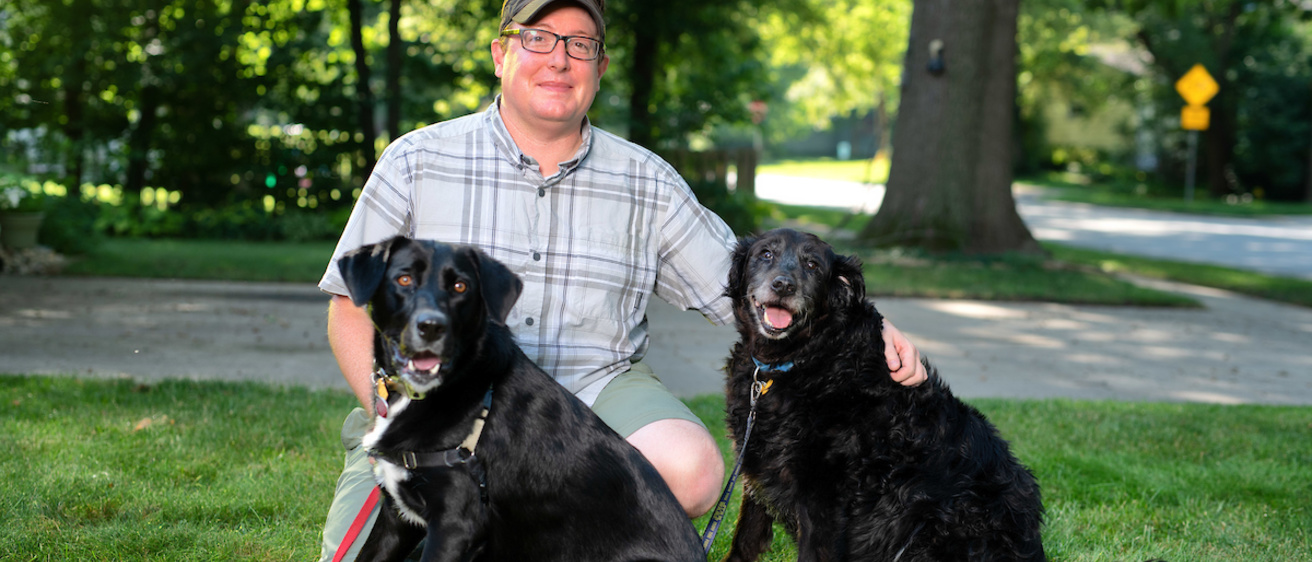Andrew Kitchen may have been a computer programmer if it weren’t for viruses.
Kitchen, an anthropological geneticist at the University of Iowa, was an undergraduate considering a third internship at the computing giant IBM when he saw an application from the prestigious University of Oxford, in England, to study phylogenetics, or the genetic relationships among species.
The choice was a “historical accident,” Kitchen says, but he soon became fascinated with how biological baggage such as pathogens and parasites could help chronicle human migration and history.
“That really opened a window for me to how we can use human-associated organisms as windows into human behavior and evolution,” Kitchen says. “I’m really a historian at heart.”
Kitchen grew up in Fort Wayne, Indiana, and majored in biomedical engineering at Johns Hopkins University before deciding to study human genetics. He earned a master’s degree in biology from Oxford and a doctorate in anthropology from the University of Florida.
After a four-year stint as a postdoctoral researcher at Penn State University, Kitchen joined the UI in 2012 and is an associate professor in the Department of Anthropology.
“I think the UI fits me well personality-wise,” he says. “I understand Midwest nice.”
Kitchen chiefly studies human origin, migration, and the rise and fall of civilizations. To do that, he leverages proxies, including bacteria, lice, viruses, and domesticated animals.
“These are things we carry with us,” says Kitchen, who is also affiliated with the university’s Genetics Cluster Initiative and the Iowa Informatics Initiative. “People might move around and have trade networks, but there might not be a genetic signature of those activities. There might be a genetic reflection, though, from viruses and pathogens that would help us follow peoples’ movement and evolution.”
In 2017, Kitchen joined a team investigating whether the current residents of Newfoundland, a Canadian island province, descended from the ancient Beothuk tribe, whose final disappearance in the 1820s has remained a mystery. The researchers unraveled the island’s ancestry by analyzing mitochondrial genomes (DNA passed down only by mothers) among generations of Newfoundlanders.
They learned that the current population mostly did not descend from the Beothuk tribe.
“There were repeated migrations even to this isolated island,” Kitchen says. “There’s this dynamic pattern of early Native Americans and European settlers. They’re moving around just as other ancient populations the world over have done. And we get this straight from human genetics.”
Kitchen is taking the research further by mapping the global geographic diversity of tuberculosis and determining whether the disease spread through ancient human trade routes and, later, by European colonization.
His most recent work, published in the journal Science, pinned down the evolutionary history of domesticated dogs in North America.
Kitchen got involved in the research when a co-author asked him to study the mitochondrial DNA from ancient dog remains. Using the extracted DNA, Kitchen found a genetic sign that pointed to a common dog ancestor and could be used to date the rate of evolution of dogs in North America.
Based in part on his work, the researchers showed that North America’s first dogs arrived with humans who crossed a land bridge from northeast Asia about 15,000 years ago. But this original North American dog lineage succumbed to the overwhelming number of dogs brought by Europeans who arrived on the continent.
“It’s another biological window into how dramatic and impactful European colonization was for Native American peoples,” Kitchen says. “Nothing was left untouched—not even their dogs.”
